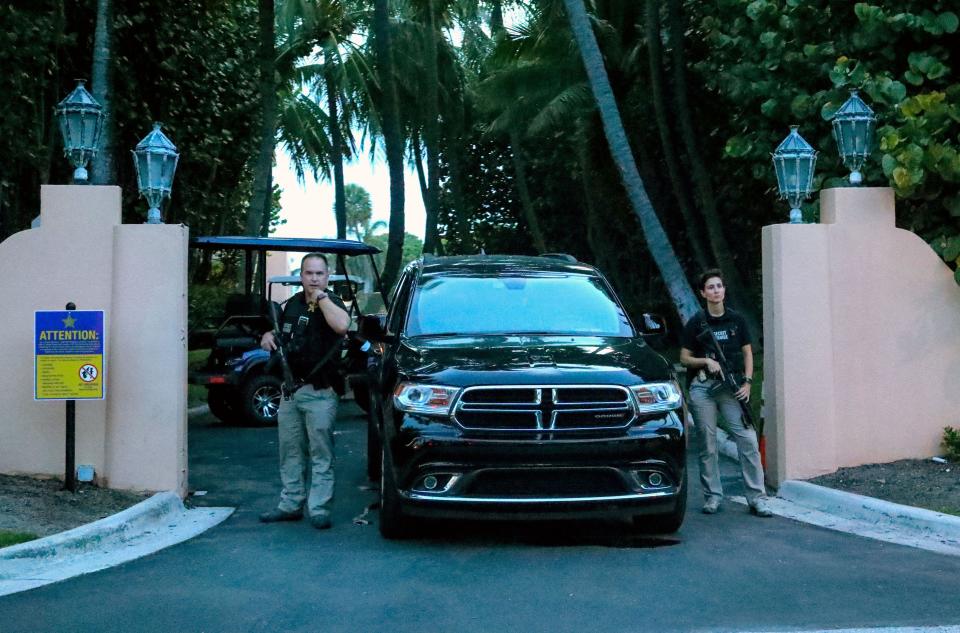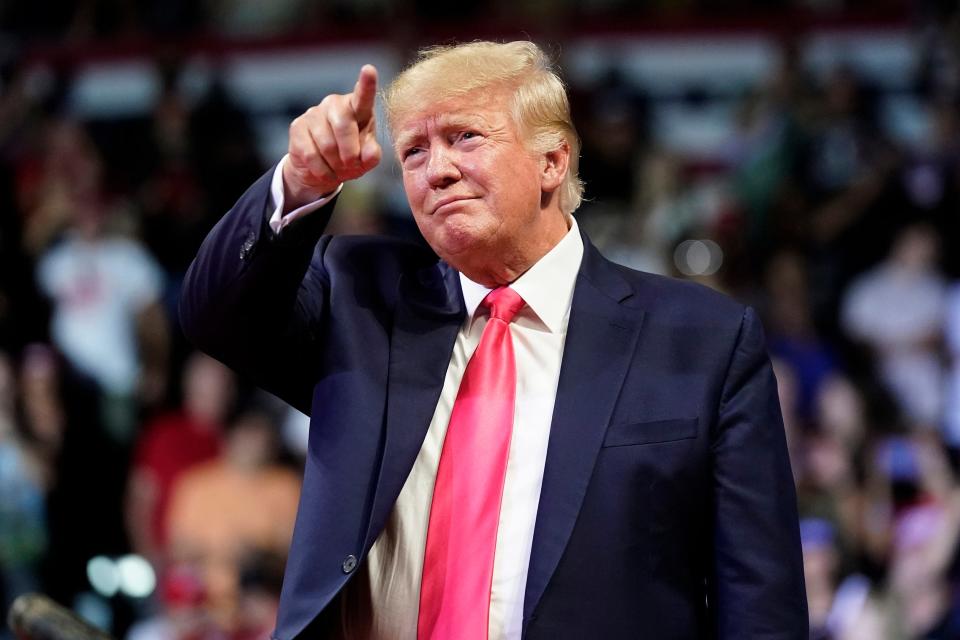Why the FBI searching Trump's Mar-a-Lago home may be a sign of things to come
- Oops!Something went wrong.Please try again later.
By any measure, the FBI’s search Monday of former President Donald Trump’s home is blockbuster news. Trump himself appeared to confirm the news when he issued a statement calling the FBI’s action a “raid,” and noted that “nothing like this has ever happened to a President of the United States before.”
This time, Trump and his critics can all agree – this is a big deal.
Reporting indicates that the documents are related to the Justice Department’s investigation into Trump’s alleged removal of classified documents from the White House at the end of his presidency. Classified material is information that if disclosed could reasonably be expected to cause damage to the national security of the United States.

Mishandling classified information is a serious crime because it puts at risk sources and methods of information relating to national security. If the content of the documents were to end up in the wrong hands, the identity of government sources could become known and their lives put at risk. Or our methods of collecting information, such as technological capabilities, could become known, undermining their utility.
You can’t leave boxes lying around when they contain the kinds of government secrets that can get people killed, even if you’re the former president.
'Defund the FBI': Trump supporters calmly react to Mar-a-Lago search
What we do know about the FBI search
Despite the seriousness of the offense, cases involving the mishandling of classified material rarely result in lengthy prison time in the absence of a willful violation of the law or intent to harm the national security of the United States, but here, the stakes are higher. A conviction under one of the relevant statutes brings with it disqualification from public office. This means that even if Trump were to face minimal prison time, he could be barred from serving as president again.
While there is still a great deal of information unknown, there are a number of things that we do know:
►To search a residence, the Fourth Amendment to the Constitution requires the FBI to obtain a search warrant. Only a judge or magistrate can issue a search warrant. Before the judge may do so, he must find probable cause to believe that evidence of a crime will be found on the premises – not evidence of any crime, but of a specific crime spelled out in a detailed affidavit submitted and sworn to by a federal agent. This means that a judge found probable cause here that evidence of a crime – possibly the removed documents themselves – would be found at Mar-a-Lago.
►A search warrant authorizes the agents to search anywhere on the premises where the item might be found. If the items to be searched for are documents, then agents can look anywhere a document could be stored, in a box, in a drawer, under the bed – all fair game. And, if any evidence is found, agents may seize the item. Here, if the agents find documents that were improperly removed from the White House, they will take them.

►If agents are authorized by a warrant to enter the premises, then they are entitled to seize not only the items that are specified in the warrant but also any contraband they can see in plain view. If they stumble upon documents that appear to be evidence of another crime, they may be able to obtain a second warrant to obtain them.
For example, Trump complained that the FBI had opened his safe, which they were entitled to do if the items they were searching for could have been stored there. But if once inside the safe, agents found documents or other items that incriminated Trump in, say, an election fraud scheme, they could potentially use that information to get another warrant based on that offense and seize those documents as well.
Alex Jones finally faces consequences: Hateful lies have to come with a cost
What do we not know about the FBI investigation?
In addition to these things that we know, there are even more things we do not know at this point. Did the National Archives or Department of Justice make efforts to request the return of all of the documents?

Has Trump been stonewalling since the National Archives first asked for the return of the documents many months ago? Why did Trump remove the documents in the first place? Do the documents contain information that is incriminating of or harmful to his legacy? Who else has access to the Mar-a-Lago residence besides Trump? Might that impact the seriousness of any improper storage?
In addition, is there more to the story – that is, was the subject of the search only the materials removed from the White House or does the warrant also authorize evidence of election fraud? What prompted the execution of the search warrant now? Will the investigation result in charges against Trump or others?
The search is big news, but the events that follow may be even bigger.
Barbara McQuade, a former U.S. attorney for the Eastern District of Michigan, is a professor at the University of Michigan Law School, an NBC and MSNBC legal analyst, and a member of USA TODAY's Board of Contributors. Follow her on Twitter: @BarbMcQuade
This article originally appeared on USA TODAY: FBI searched Trump's Mar-a-Lago: What comes next could be huge

